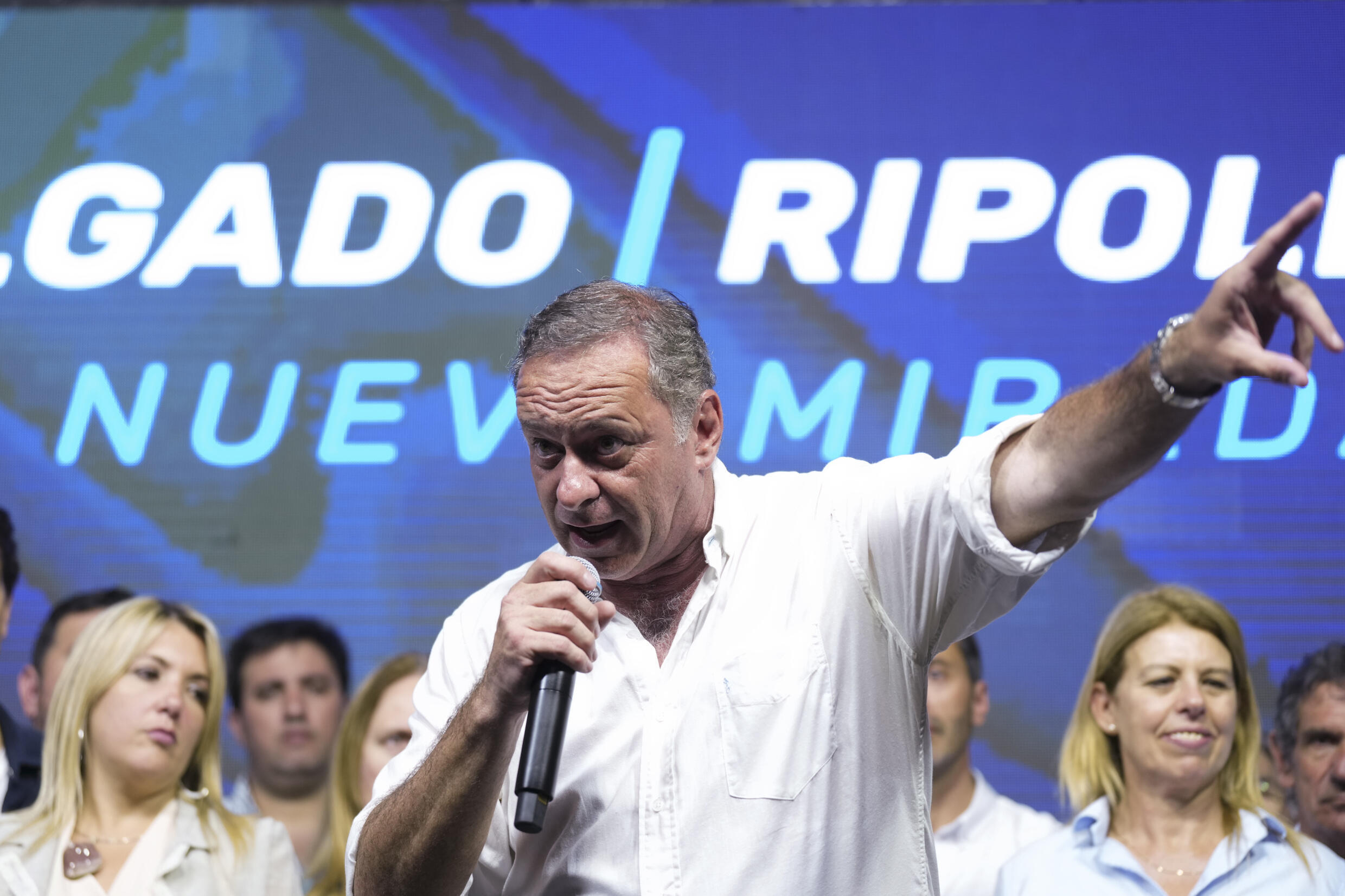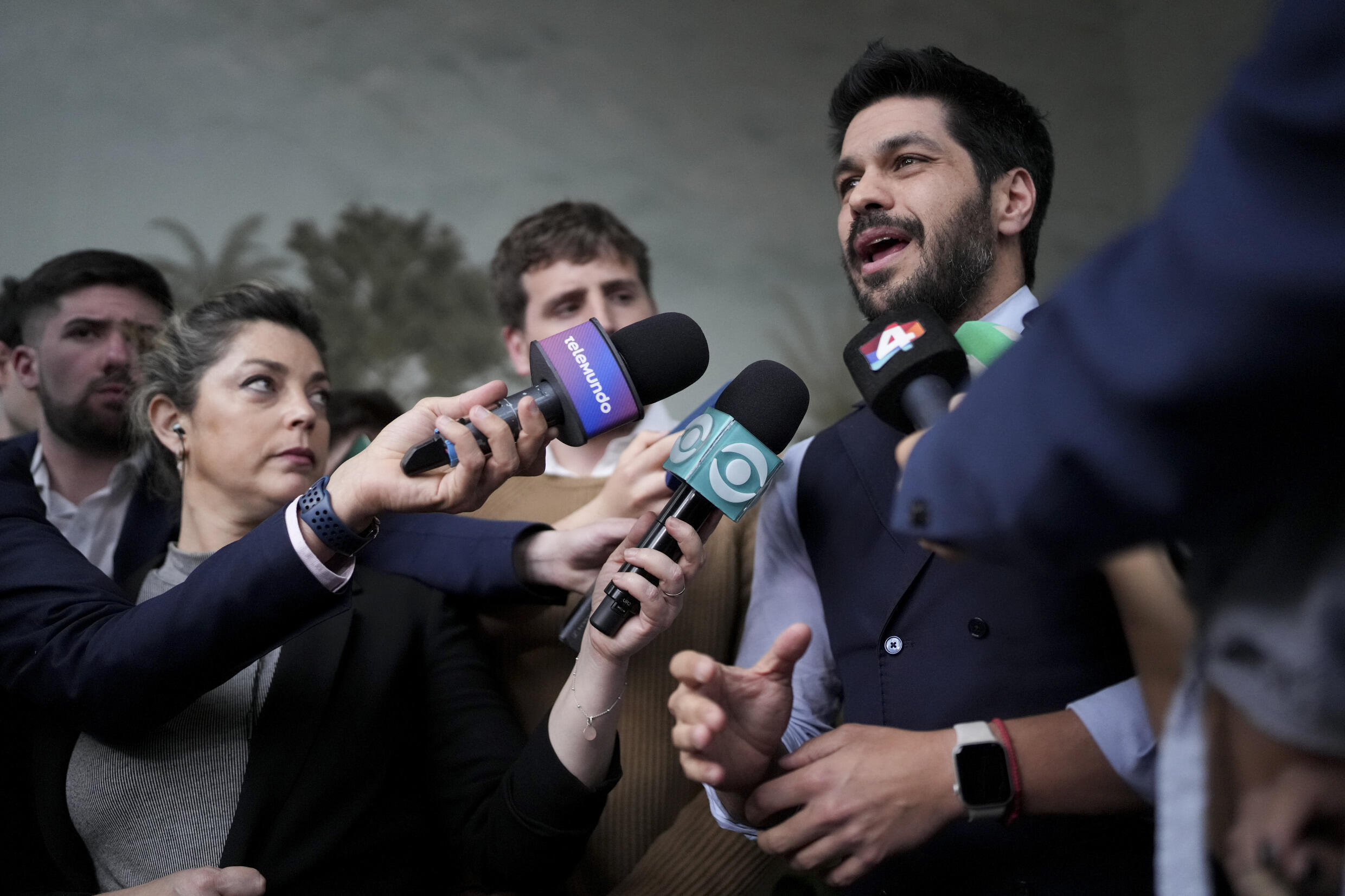Uruguayans are called to the polls this Sunday, October 27 for general elections at the end of a campaign centered on insecurity and the question of pensions. Uruguayans elect their president, as well as the vice president, members of the House of Representatives and the Senate, and also vote in two constitutional referendums.
7 mins
From our regional correspondent,
On a continent marked by ever more exacerbated ideological polarization, theUruguay stands out for the serenity of his political life. This Sunday, voters in this small country of 3.5 million inhabitants will vote to choose their new president and renew their Parliament at the end of a campaign ” who did not unleash passions “, according to Antonio Cardarello, professor of political science at the Universidad de la República, in Montevideo.
The candidate of Frente Amplio (opposition, left), Yamandú Orsi, is leading the race in the polls. After two terms at the head of the department of Canelones, the second most populous in the country, he is credited with 43% of voting intentions for the presidential election.
Facing him, the five parties of the right-wing coalition in power arrive in dispersed order, and each present their candidate. The best placed in the polls, with around 22% of voting intentions, is that of the Nacional party: Alvaro Delgado. Dauphin of the current president Luis Lacalle Pouof which he was the right-hand man for five years, he presents himself as the candidate of continuity, as evidenced by his campaign slogan: “ Renew good government “.

Just behind him in the surveys, Colorado Party candidate Andrés Ojeda hopes to steal a place in the second round thanks to a disruptive campaign aimed at young people.

Insecurity at the center of the campaign
Regarding the programs, Antonio Carderello prefers to speak of “ nuances » only real differences. “ Whether on the importance of maintaining macroeconomic balance, on Uruguay’s place in the world or on the need to open new markets, there is more convergence than divergence. believes the political scientist. The campaign focused on the main concern of Uruguayans: insecurity.
Five years ago, the current government coalition was elected thanks to a speech of firmness against delinquents. The promise was kept, the prison sentences toughened, but the results are mixed. While thefts and assaults have decreased, this is not the case for homicides. “ On homicides, we have not succeeded », recognized the current president Luis Lacalle Pou in early June in an admission of failure.
With 11.2 homicides per 100,000 inhabitants, Uruguay has a homicide rate almost twice the world average. Emiliano Rojido, sociologist specializing in violence and crime, emphasizes that “ the WHO establishes that a homicide rate above 10 corresponds to an epidemic level beyond which the situation is more difficult to control, because violence begets violence “. For the sociologist, the right-wing coalition in power and the left-wing governments which preceded it demonstrated “ of amateurism » in terms of security. This with a vision “ exclusively based on police work and imprisonment », which does not take into account scientific approaches to violence and crime.
In addition to failing to reduce lethal violence, the government’s policy has had perverse effects. The prison population, already high, increased from 11,000 to 16,000 people in five years. “ Relative to its population, Uruguay is the country with the most prisoners in South America and is in the top 10 in the world » underlines Emiliano Rojido. So many resources that could be devoted to public policies intended to reduce the recidivism rate to 70%, recalls the researcher.
Antonio Carderello highlights another blind spot in this firm policy, which could cost the government dear electorally: “ There is a phenomenon linked to people who have short sentences, and who have no possibility of reintegration and nowhere to go when they get out. There are 4 000 people living on the streets in Montevideo, and it’s something that everyone sees.”
According to the official classification – widely questioned by Emiliano Rojido – half of the homicides committed in 2023 were linked to “ settlement of accounts » or “ conflicts between criminals “. To try not to lose control over the issue of security and the fight against organized crime, the government has initiated a constitutional reform which will be submitted to a referendum this Sunday, and which notably plans to authorize night searches.
Also readUruguay: Tabaré Vázquez, the man who brought the left to power
Social Security reform subject to referendum
The other debate which monopolized the campaign is that of the reform of Social Security, which will also be submitted to a referendum this Sunday. Driven by the PIT-CNT, the country’s central trade union, it proposes to modify the Constitution to reduce the retirement age to 60 years (it had been pushed back to 65 years in 2022 by the current government), to align pensions with the minimum wage and abolish pension funds to make pensions an exclusive competence of the State.
The project divides even within the Frente Amplio, which has not managed to agree on a voting guideline. The party’s presidential candidate Yamandú Orsi estimated at the end of September that this reform was “ highly inappropriate », questioning in particular the fact of including these changes in the Constitution rather than in the law.
The other argument that achieves consensus across a large part of the political spectrum and among economists is the fiscal cost of this reform, underlines Antonio Cardarello. “It would be a big expense which would unbalance the public accounts, and in the case of a victory of the Frente Ampliothese would be resources that could not be earmarked for other social reforms, such as the fight against child poverty, which is something that there is also consensus. Poverty especially affects the youngest. It concerns 2 % of over 60s, and almost 25 % of under 14 years. »
Also readUruguay: the right comes to power in a context of social distrust
